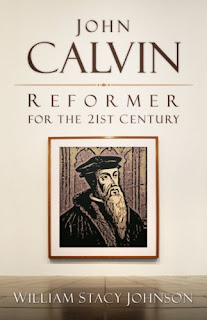
I just finished reading "The Great Emergence" by Phyllis Tickle and I would commend it to anyone who is trying to get a handle on the most recent changes in the various expressions of the Christian faith in such congregations as Jacobs Well (Kansas City), A Simple Way (Philadelphia) and other Emerging congregations around the country AND the world. She lifts it up as the next reformation of the Christian church and she suggests that this happens every 500 years or so. A short video summary can be seen at thegreatemergence.com presented by the author. She says "The Great Emergence, like the Great Reformation or the Great Schism (between Eastern and Western Christianity) or the time of the Great Gregory or the Great Transformation, is generalized social/political/economic/intellectual/cultural shift." (p. 120) She talks about the variety and diversity of the Emerging Church movement and yet she also states that "All however, share one shining characteristic, they are incarnational. Not only does Jesus of Nazareth incarnate God, but Christian worship must be incarnate as well. It must involve the body in all its senses and take place among people, all of whom are embraced equally and as children of God." (p. 135) Tickle says that the emerging churches are radically Jesus centered, communal, connected electronically to each other on a real time basis, non exclusive and searching ancient Christianity for ancient symbols to reflect this emerging reality.
And even though Tickle talks about this movement as "post-denominational" she is not negative about the life and vitality of denominations as a result of this "great" movement. In fact she spends a good part of her last chapter exploring how this phenomenon fits into the current denominations world that she characterizes as having roughly four quadrants:
Liturgicals (Catholics,Epis)-Social Justice Christians (Presby, Meth)
Renewalists (Pentecostals)-Conservative (Baptists, Evangelicals)
Of course Tickle acknowledges that within denominations there is variety and that no one denomination fits neatly into a box and so there is overlap between these somewhat artificial groupings. She then positions the Emerging Church movement at the center of this denominational landscape suggesting that they are picking and choosing from the various traditions. She also suggests that each of the denominations will in turn learn from the Emerging movement (just as the Catholic Church learned and grew out of the Reformation) and that in response to the the Emerging movement, that the Christian church will in fact grow in size and vitality.
So what does this all have to do with Trinitarian leadership (since that is the current focus of this blog)? I believe that Trinitarian leadership is something that us "Old Reformers" can offer to these new reformers. As I read and reflect and teach on the Emerging Church movement, I also see the incarnational theology shine through but I also see a strong Trinitarian theology as embedded in the leadership of the movement. When Tickle describes the emerging church as "relational, nonhierarchical, a-democratized form of Christianity...moving toward a system of ecclesial authority that waits upon the Spirit and rests upon the interlacing lives of Bible- listening, Bible-honoring believers" I believe that she is talking about ecclesial leadership after the model of the triune God. Characteristics of Trinitarian leadership that I am developing based on Jurgen Moltmann's discussion of the Trinity in his book "The Trinity and the Kingdom" and Miroslav Volf's "After Our Likeness" are:
-1-Unity built on open and inviting communication that integrates the many distinct parts;
-2-Diversity which allows uniqueness and self-differentiation while still works toward a common purpose;
-3-Integrity among the leaders in the leadership community and integrity in what the community says and how it operates;
-4-Mutual Concern and Care which implies an intimate relationship through the Holy Spirit. This allows us to know each other and hold each other even and especially in pain;
-5-Equality of Shared Power and integrated power in place of a hierarchy of held power; and
-6-Mutual Encouragement in which each part of the leadership community builds up and encourages the others.
I do agree with Phyllis Tickle that we can be in conversation with these new and evolving expressions of the Christian witness not as one team competing with another for a market share but rather as a community also formed around Jesus of Nazareth with a rich heritage to share and a thing or two that we might learn together.























